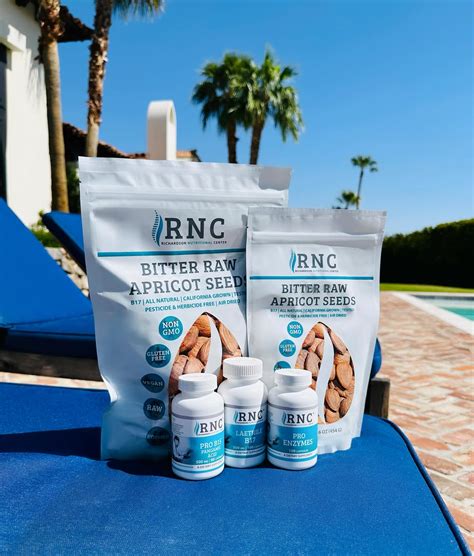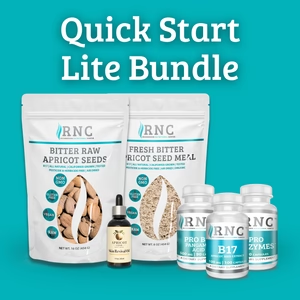Hidden in Plain Sight: Apricot Seeds,
Vitamin B17, and the
Battle Over Natural Cancer Defenses
A Controversial Conversation
Mention to someone that you eat Apricot Seeds every morning, and you’ll likely get a concerned look—or perhaps the reflexive warning: “Don’t you know those contain cyanide?”
That refrain has been repeated in headlines, regulatory statements, and doctors’ offices for decades. It has fueled fear, spurred legal battles, and even led to prison sentences. But the narrative we’ve been given is incomplete.
What if the so-called “danger” was exaggerated—or even misrepresented? What if Apricot Seeds and their key compound, Vitamin B17, hold overlooked potential in supporting the body against cancer?
This is the untold story of the seed that was nearly erased from history.
Nature’s Blueprint: Amygdalin and Its Mechanism
The center of the controversy is a natural substance called amygdalin—commonly referred to as Vitamin B17. It’s found in the kernels of apricots, bitter almonds, and more than a thousand other plants.
When metabolized, amygdalin yields glucose, benzaldehyde, and a small amount of cyanide. That last word has shaped the entire debate.
To most people, “cyanide” immediately evokes poison and crime novels. But context matters. In amygdalin, cyanide is locked safely inside the compound. It only becomes active under particular conditions.
- Cancer’s key: Tumor cells contain high concentrations of an enzyme, beta-glucosidase, which unlocks cyanide and benzaldehyde, releasing their toxic effects directly where they are needed.
- Healthy cells’ shield: Normal tissues contain an enzyme called rhodanese, which detoxifies the compounds and renders them harmless.
In short, nature designed amygdalin with safeguards—an elegant, targeted system that harms cancerous cells while sparing healthy ones.
- Edward Griffin documented this in his classic World Without Cancer: The Story of Vitamin B17. Yet, outside of natural health circles, this distinction between bound cyanide and free cyanide has been blurred—or deliberately ignored.
From Hope to Handcuffs: The Richardson Case
In the 1970s, Dr. John A. Richardson, MD, brought Laetrile—a purified form of amygdalin—into his San Francisco practice. Many of his patients were labeled “terminal,” with no options left after exhausting conventional medicine.
What happened next was remarkable: patients regained strength, tumors diminished, and lives were extended. Families began to hope again.
But instead of investigating these outcomes, authorities launched raids. The FDA confiscated vials of Laetrile. Dr. Richardson and his staff were arrested—not for malpractice or patient harm, but for daring to offer an alternative.
The lesson was unmistakable: this wasn’t about protecting patients. It was about policing options.
The Science Buried Beneath the Headlines
Critics often insist that Laetrile is “unproven.” Yet the scientific record tells a more complex story:
- Promising studies cut short: Several research projects exploring amygdalin were halted before completion or stripped of funding.
- Careers on the line: Scientists who pursued B17 risked losing grants, reputations, and positions.
- Dismissed recoveries: Documented patient recoveries were written off as “coincidence” or “anecdotal.”
Griffin’s World Without Cancer explains cancer through a nutrient deficiency model, comparing it to scurvy (Vitamin C deficiency) or pellagra (niacin deficiency). If B17 is absent from the diet, defenses fail and rogue cells multiply. Restore the nutrient, and the body regains its balance.
Why the Fear Narrative Won
If amygdalin’s mechanism is plausible, why the relentless campaign against it? The answer is often traced back to money.
Cancer is one of the most lucrative industries on earth. Chemotherapy drugs, radiation, surgeries, and lifelong treatments collectively generate billions of dollars annually. By contrast, a natural compound like B17 can’t be patented. No patents mean no exclusive profits.
So instead of researching B17, the system invested in suppressing it. Seeds were labeled “toxic.” Physicians were threatened with license revocation. Patients were scared away from even trying.
The true danger wasn’t that Apricot Seeds could harm patients—it was that they might undermine a billion-dollar empire.
Lessons from History: Deficiency Diseases and Breakthroughs
History shows us how many “mystery diseases” were solved by restoring missing nutrients:
- Scurvy vanished once sailors consumed citrus rich in Vitamin C.
- Beriberi disappeared with the discovery of thiamine (B1).
- Pellagra was solved with niacin (B3).
Could cancer be—at least in part—a modern deficiency disease, worsened by diets stripped of natural seeds, kernels, and plant compounds?
Toward Medical Freedom and Informed Choice
Today, conversations about medical freedom are gaining momentum. Patients are asking why they are denied access to natural, God-given solutions. Families are pushing for informed consent, not one-size-fits-all treatment.
The core question is no longer just “Does B17 work?”
It’s “Why can’t patients choose it for themselves?”
That principle—patient choice—is what Dr. Richardson fought for in the 1970s. And it remains the mission of Operation World Without Cancer (OWWC): to restore truth, fund research, and provide people with access to natural options that have been silenced for too long.
A Vision for the Future
Imagine a future where:
- Doctors learn about both patented drugs and nutritional therapies.
- Patients explore integrative treatments without fear of prosecution.
- Clinical studies evaluate natural compounds with the same rigor as pharmaceuticals.
- Cancer prevention is as accessible as scurvy prevention became with citrus fruit.
This isn’t fantasy—it’s a vision within reach.
Take Part in Reclaiming the Narrative
- Read the book that started it all: Download your free PDF of World Without Cancer: The Story of Vitamin B17 at com.
- Support the mission: Visit org. Your donations fuel research and awareness campaigns.
- Explore natural options: Discover Apricot Seeds and B17 products at com. Use code NEWAGORA for 10% off.
- Get matched with a Certified Richardson Protocol Physician you can trust at com
Please Use Code NEWAGORA for 10% Off Your Purchase
Because sometimes the answers aren’t locked away in a lab—they’re hanging in the orchard,










